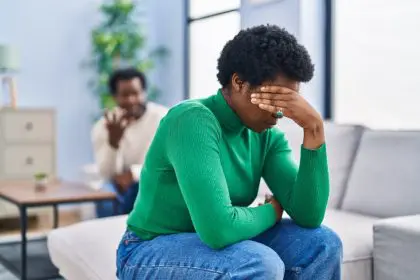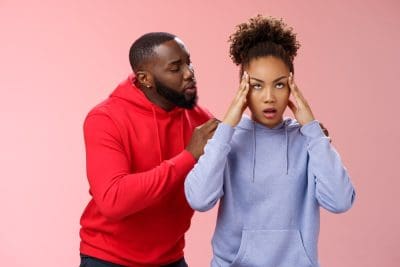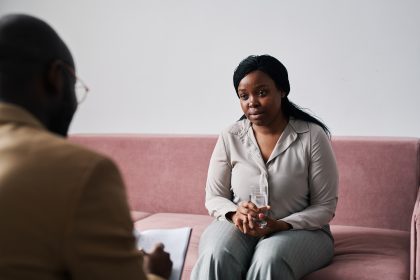Relationships are complex, but one pattern seems to repeat itself for many people — ending up with the same type of partner over and over again. Whether it’s emotionally unavailable individuals, toxic personalities or partners who lack ambition, the cycle can feel frustrating and even disheartening. But there’s a reason behind the repetition, and understanding it could be the first step toward breaking free from unhealthy relationship loops.
The unseen cycle of repeated patterns
Attracting the same kind of partner isn’t coincidence — it often stems from deeper emotional frameworks shaped during childhood or early life experiences. These patterns become unconscious scripts that influence who we are drawn to.
For instance, someone who grew up with emotionally distant caregivers might subconsciously seek out partners who replicate that same detachment. It feels familiar — even comforting — even if it causes pain.
In this way, the people we choose to love often mirror unresolved emotional issues we haven’t addressed within ourselves.
How your past shapes present choices
Your past experiences have a powerful hold on your present behavior. Childhood trauma, neglect or inconsistent parenting can plant seeds that blossom into attachment issues in adult relationships. You may unknowingly chase after people who activate the same feelings of inadequacy, hoping this time, the outcome will be different.
This phenomenon is sometimes called a “repetition compulsion” — a psychological drive to re-experience unresolved pain in hopes of rewriting the ending. Unfortunately, without conscious awareness, these attempts typically lead to more heartbreak.
Self-worth determines partner selection
Our self-worth plays a key role in the partners we allow into our lives. If you believe — deep down — that you don’t deserve consistency, love or respect, you’re more likely to tolerate partners who confirm those beliefs.
In contrast, individuals who have done the inner work to value themselves more highly often attract partners who reflect that growth. They recognize red flags early and are willing to walk away, even if they feel a strong attraction.
When chemistry misleads us
Chemistry can be misleading. It’s often confused with compatibility, but intense attraction doesn’t always mean someone is right for you.
That rush you feel when meeting someone new? It may be your nervous system responding to something that feels familiar — not necessarily something that’s good for you.
This is why someone may feel bored around a kind, stable partner but be magnetically drawn to someone who brings chaos. What feels familiar often feels right, even when it isn’t healthy.
The importance of boundaries and standards
People who repeatedly attract unhealthy relationships often have flexible or unclear boundaries. Without firm standards, it’s easy for the wrong type of person to enter your life and stay far too long.
Establishing what you will and won’t tolerate is critical. This includes not just obvious red flags like dishonesty or disrespect but subtle signs — like lack of communication, inconsistency or passive aggression — that erode trust over time.
The right boundaries act as filters, helping you avoid situations that lead back to the same dead ends.
Understanding trauma bonds
Sometimes what you think is love is actually a trauma bond. These intense, roller-coaster dynamics are driven by highs and lows that mimic addictive cycles.
One moment you’re euphoric, the next you’re anxious or crushed. It becomes a psychological trap where the moments of tenderness keep you tethered, despite overwhelming signs that the relationship is harming you.
Breaking trauma bonds requires distance, support and often professional guidance. It’s not weakness to seek help — it’s survival.
Attraction versus compatibility
Being physically or emotionally drawn to someone doesn’t mean you’re a good match. In fact, the traits that ignite the strongest attraction can be the very ones that trigger your deepest insecurities.
Compatibility is rooted in shared values, emotional availability, respect and mutual effort. When those qualities aren’t present, it doesn’t matter how passionate things feel — the relationship is on shaky ground.
Learning to prioritize long-term connection over instant chemistry can help shift the type of partner you pursue.
The role of self-awareness
To stop attracting the same kind of partner, you need to change the relationship you have with yourself. This means taking an honest inventory of your emotional needs, blind spots and the beliefs that drive your decisions.
Ask yourself: What do I think I deserve in love? Do I chase validation instead of connection? What role do I tend to play in relationships — rescuer, fixer, avoidant, pleaser?
The answers can be uncomfortable, but they unlock the door to change.
Making different choices
Healing requires conscious effort and new choices that align with your values rather than your wounds. You’ll need to set stronger boundaries and learn to say no without guilt, raise your standards and don’t settle for breadcrumbs of affection, pay attention to patterns as your body knows when something is off, take time between relationships to give yourself space to reflect and grow, and seek support through therapy, support groups or conversations with trusted friends.
Each time you choose differently, you chip away at the cycle that has held you back.
Distinguishing needs from wants
Sometimes you may pursue someone who seems to match your desires — exciting, charming, bold — but they may not meet your emotional needs, like consistency, empathy or communication.
Distinguishing between the two is crucial. You might want someone who always takes the lead, but if that means they dominate the relationship, it can leave you feeling powerless.
Understanding your core needs will guide you toward healthier partnerships, even if they don’t match the fantasy you once clung to.
Breaking free from familiar patterns
Walking away from what’s familiar can feel terrifying. It takes immense courage to reject the patterns that no longer serve you and to wait for someone who meets you with intention, respect and love.
But the longer you stay committed to breaking the cycle, the easier it becomes to spot the signs early and choose differently.
You are not doomed to repeat your past. The moment you decide to stop betraying yourself for the sake of companionship, your entire love story can begin to change.
Rewriting your relationship story
Picture what your life could look like if your relationships felt nourishing, not depleting. Imagine a love that uplifts, supports and sees you fully — not one that keeps you questioning your worth.
That kind of relationship starts with you. It begins the day you stop chasing what’s familiar and start choosing what’s healthy. It starts when you decide you deserve more than being tolerated — you deserve to be cherished.
Healing takes time, but it’s possible. And once you start walking toward wholeness, you’ll stop attracting partners who reflect your pain — and start attracting those who reflect your peace.














